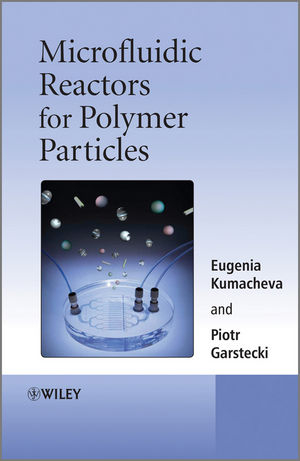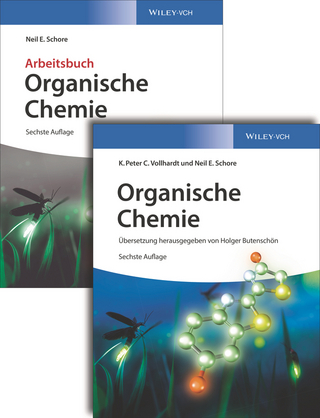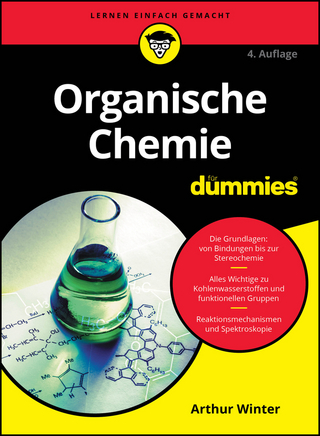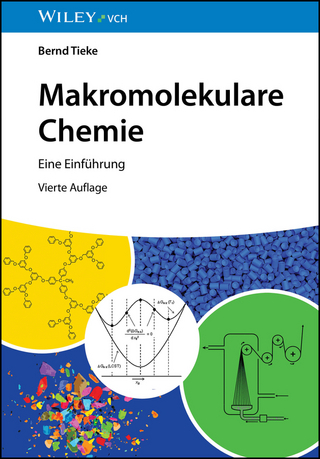
Microfluidic Reactors for Polymer Particles
John Wiley & Sons Inc (Verlag)
978-0-470-05773-5 (ISBN)
The manipulation of fluids in channels with dimensions in the range from tens to hundreds of micrometers – microfluidics – has recently emerged as a new field of science and technology. Microfluidics has applications spanning analytical chemistry, organic and inorganic synthesis, cell biology, optics and information technology. One particularly promising application is the microfluidic synthesis of polymer particles with precisely controlled dimensions, and a variety of shapes, morphologies and compositions. Written as a comprehensive introduction for scientists and engineers working in microfabrication and microfluidics, Microfluidic Reactors for Polymer Particles covers topics such as:
Applications and methods of generation of polymer particles
Physics of microfluidic emulsification
Formation of droplets in microfluidic systems
High-throughput microfluidic systems for formation of droplets
Microfluidic production of polymer particles and hydrogel particles
Polymer capsules
Synthesis of polymer particles with non-conventional shapes
This book is intended for a broad audience, including students, researchers and engineers in industry, with interests in physics, chemistry, materials science, engineering or biotechnology.
Professor Eugenia Kumacheva is based in the Department of Chemistry at the University of Toronto (Canada). She received her MSc degree from the Institute of Chemical Technology (now Technical University) in Saint Petersburg (Russia) and completed her PhD research in the physical chemistry of polymers at the Institute of Physical Chemistry (Russian Academy of Science). In 2002, she spent a sabbatical at Harvard University with Professor George Whitesides. Professor Kumacheva has published over 70 papers, has filed twelve patent applications and received a number of awards including the Macromolecular Science and Engineering CIC Award in 2005. Piotr Garsteckiis an assistant professor in the Institute of Physical Chemistry at the Polish Academy of Sciences, where he was obtained his PhD in Chemistry. From 2002 to 2005, he was a postdoctoral fellow at the Department of Chemistry and Chemical Biology, Harvard University (USA). In 2005, Piotr Garsteckireturned to the Polish Academy of Sciences, where his main research interestsare microfluidics and dynamic self-organization in complex fluids.
Preface. 1 Applications of Polymer Particles.
References.
2 Methods for the Generation of Polymer Particles.
2.1 Conventional Methods Used for Producing Polymer Particles.
2.2 Microfluidic Generation of Polymer Particles.
References.
3 Introduction to Microfluidics.
3.1 Microfluidics.
3.2 Droplet Microfluidics.
References.
4 Physics of Microfluidic Emulsification.
4.1 Energy of the Interfaces Between Immiscible Fluids.
4.2 Surfactants.
4.3 Interfacial Tension.
4.4 Laplace Pressure.
4.5 Rayleigh–Plateau Instability.
4.6 Wetting of a Solid Surface.
4.7 Analysis of Flow.
4.8 Flow in Networks of Microchannels.
4.9 Dimensional Groups.
References.
5 Formation of Droplets in Microfluidic Systems.
5.1 Introduction.
5.2 Microfluidic Generators of Droplets and Bubbles.
5.3 T-Junction.
5.4 Formation of Droplets and Bubbles in Microfluidic Flow-Focusing Devices.
5.5 Practical Guidelines for the Use of Microfluidic Devices for Formation of Droplets.
5.6 Designing Droplets.
5.7 Conclusions.
References.
6 High-Throughput Microfluidic Systems for Formation of Droplets.
6.1 Introduction.
6.2 Effects that Modify the Pressure Distribution.
6.3 Hydrodynamic Coupling.
6.4 Integrated Systems.
6.5 Parallel Formation of Droplets of Distinct Properties.
6.6 Conclusions.
References.
7 Synthesis of Polymer Particles in Microfluidic Reactors.
7.1 Introduction.
7.2 Particles Synthesized by Free-Radical Polymerization.
7.3 Polymer Particles Synthesized by Polycondensation.
7.4 Combination of Free-Radical Polymerization and Polycondensation Reactions.
7.5 General Considerations on the Use of Other Polymerization Mechanisms.
7.6 Important Aspects of Microfluidic Polymerization of Polymer Particles.
7.7 Synthesis of Composite Particles.
References.
8 Microfluidic Production of Hydrogel Particles.
8.1 Introduction.
8.2 Methods Used for the Production of Polymer Microgels.
8.3 Microfluidic Synthesis and Assembly of Polymer Microgels.
8.4 Microfluidic Encapsulation of Bioactive Species in a Microgel Interior.
References.
9 Polymer Capsules.
9.1 Polymer Capsules with Dimensions in Micrometer Size Range.
9.2 Microfluidic Methods for the Generation of Polymer Capsules.
9.3 Emerging Applications of Polymer Capsules Produced by Microfluidic Methods.
References.
10 Microfluidic Synthesis of Polymer Particles with Non-Conventional Shapes.
10.1 Generation of Particles with Non-Spherical Shapes.
10.2 Synthesis of Janus and Triphasic Particles.
10.3 Other Particles with “Non-Conventional” Morphologies.
References.
Summary and Outlook.
Index.
| Verlagsort | New York |
|---|---|
| Sprache | englisch |
| Maße | 170 x 252 mm |
| Gewicht | 590 g |
| Themenwelt | Naturwissenschaften ► Chemie ► Organische Chemie |
| Naturwissenschaften ► Physik / Astronomie ► Strömungsmechanik | |
| Technik ► Maschinenbau | |
| ISBN-10 | 0-470-05773-4 / 0470057734 |
| ISBN-13 | 978-0-470-05773-5 / 9780470057735 |
| Zustand | Neuware |
| Informationen gemäß Produktsicherheitsverordnung (GPSR) | |
| Haben Sie eine Frage zum Produkt? |
aus dem Bereich


